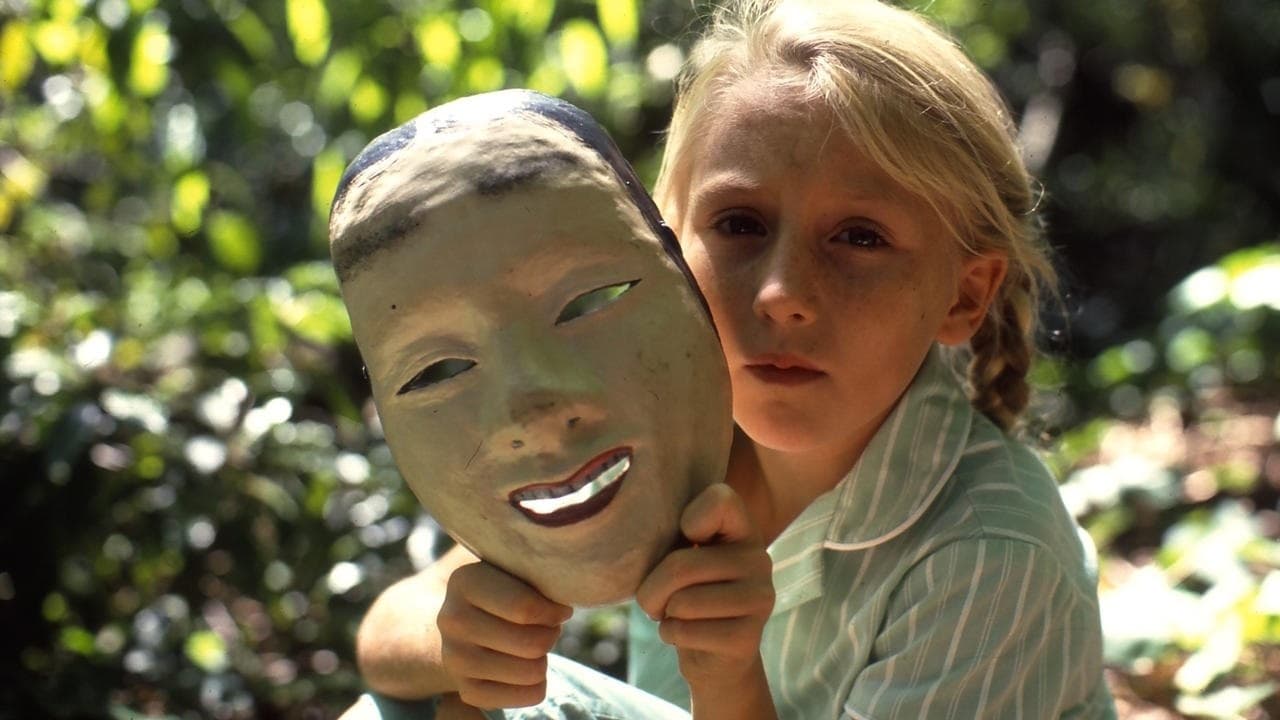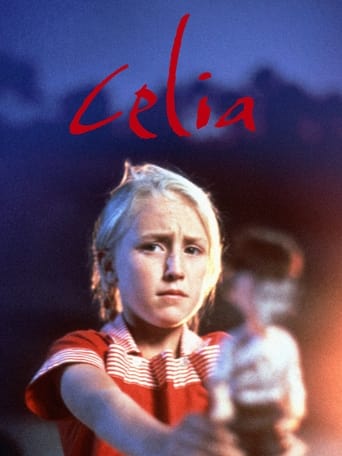Stometer
Save your money for something good and enjoyable
ActuallyGlimmer
The best films of this genre always show a path and provide a takeaway for being a better person.
Guillelmina
The film's masterful storytelling did its job. The message was clear. No need to overdo.
Cristal
The movie really just wants to entertain people.
Steve Skafte
This film made me uneasy. It's so real, so true to life, so light and so heavy, understated and over the top. It captures all the wild uneasiness and expression and off-center humanity of childhood, and makes it breathless and fully alive. It takes you all over the place. There's so many things going on, so many events and strange sights and sounds. The kids are swept along through some kind of strange journey, a backward and breathless running through life. This is not a horror film, or even a fantasy. It is a straightforward drama, that not only captures real life but delves deep into the sort of confused reality of imagination that children so often confuse with everything else.This film made me uncomfortable. At times, it's alive and pure and safe and quiet. At other times, it's brash and explosive and emotionally uneasy. In the end, it's dark and deeply disturbed. You don't see it coming, but in a way, the ending colors everything that's come before. It's the believability that makes it so strange, so hard.Rebecca Smart plays Celia. She shows a range of character that totally beyond expectation. She's confident, scared, awake, aware, confused. It takes a lot of time to understand all the complexities at work in her. Celia makes no sense, or maybe all too much. In the end, she becomes a more complete person. One who will live with things most of us could hardly even imagine.Geoffrey Simpson's cinematography is totally realist. There's no strange photography, no experimentation. It's filmed like a regular story, without exaggeration. And it's all the better for it. This film's writer/director Ann Turner (who's done little else of note), creates a strange and powerful story with her understanding of character. She pushes through all of her strangest, most uneasy ideas without ever making you feel like you're not seeing real lives. Chris Neal creates some strongly effective music. It is at once timeless and perfectly fitting. It sounds little like any movie music I'd previously heard, but quite exactly fitting to the images. Otherworldly without feeling out of place."Celia" is not an average film. It sees and expresses things in a way utterly like any other in the history of film. It has no peers in this sense, and that alone makes it one of the most powerful cinematic experiences I've ever had. But the nature in how it grafts darkness to light, fear to joy, is disconcerting. If you still remember childhood, you can find yourself in the scenes of "Celia". This is not sensationalism. This is one little girl's precarious existence.
Lee Eisenberg
In summer, 2003, I took a class about Australian cinema. We watched films like "Walkabout", "Gallipoli" and "Rabbit-Proof Fence"; it might have thrown a wrench in the works had we watched "Celia". At the video/DVD store, I found it under the horror section, but it's only a horror flick in the loosest terms. The movie deals with a nine-year-old girl (Rebecca Smart) in 1950s Australia whose amorality and alienation from society drive her to complete madness; I think that that was the plot. Certainly it's ugly what Celia does, but seeing what the adults around her are like, I felt that I had no choice except to root for Celia.The historical context involves the Cold War and the government's efforts to stop the rabbit infestation. As people tell Celia not to fraternize with children of communists, she grows more and more disenchanted with the world around her - after all, friends are supposed to be friends no matter what the parents' political activity. But when a cop takes away her pet rabbit, she really gets nasty (it also shows that the rabbit-proof fence that lent its name to the 2002 movie clearly didn't work in holding back the leporid plague).So how to interpret this movie? It looks at face value like one of the many instances of a seemingly cute girl having a not so cute side (think "The Bad Seed"). One might say that the rabbits play a role similar to the ones in "Night of the Lepus" and "Donnie Darko", even though Celia's rabbit doesn't do anything. I guess that it's worth seeing, if only once.
ian_ison
Firstly, this story is set in Victoria - not South Australia - as can be demonstrated from the name of the state Premier, Sir Henry Bolte. Next, the children aren't playing in a desert, but rather the local abandoned industrial sandpit. It is her dead grandmother who had been a communist rather than her parents who are opposed and working hard at cutting all ties - including burning gran's library and banning Celia from playing with the kids of their 'Commie' new neighbours.The rather bizarre choice of storybook read to the class by their teacher and which has Celia enthralled by its demonic 'hobbyars' is "A Sweet Obscurity" by Patrick Gale. Ultimately, her confusion between her terrified obsession with these monsters of the dark and the real world in which she must do battle with the "Powers That Be" trying to oppress, corrupt and destroy everything she loves - her memories of her communist grandmother, her friends next door, her pet rabbit, Murgatroyd - lead to her own mini-revolution and act of murder and the equally riveting scene where she terrorises the only witness (a weak-willed playmate) into lifelong silence.The story is in many respects so 'strange' as to seem based in reality - almost as if the author is making a confession about a crime in childish innocence committed as Celia. I don't know that I wanted the story to end in any way on a light-hearted note. The tragedy seemed likely to leave a lasting hole in several lives - unlikely to be reparable by a kiss or a hug.I recently found this movie as a throw-out sale item at the video store and it rekindled memories of when I'd first seen it on TV. Unfortunately, the name is not memorable - a flaw the producers should be warned of with any film the fans are likely to seek out. I had only vaguely remembered the 'hobbyars' as 'blue meanies' as in the Beatles film 'Yellow Submarine' - which wasn't much help for a search. It is not likely to be a widely available film even in Australia and if you have a copy, then you're lucky.
DomiMMHS
As far as I can see, "Celia" is a complex movie about childhood that lacks something. It fails to make the viewer understand the way the heroine feels and thinks. The heroine is Celia, a young girl who grows up in Australia in the 1950s.I must mention that I was way disappointed by the contents of the movie. If only because the plot summaries I read about it in diverse magazines turned out pretty wrong. They were like: "9-year-old Celia has no playmates except for her rabbit. When a policeman takes away the rabbit from her, she vows revenge." Alright, but that's not the gist of it. Celia is not an isolated or lonely little girl, first of all, she's rather horrifyingly lively. She does have playmates, three neighbour kids whose parents are communists. Celia actually spends more time with these kids and with their mother than she does with her own parents. Moreover, many scenes deal only with these children's play. Most of the time they play in some desert landscape, which seems kind of grotesque, where there is caves and rocks and sand - but hardly any people or animals. Grotesque - that's what the movie appears to be like. We have these two parties of kids: The children of the communists and the "communist haters" and they fight a rather serious battle. And we have that crazy idea of the government that rabbits were pests. I don't object to "grotesque" stories, but a certain deal of irony is required to make them enjoyable - this movie lacks irony.Still we get a good impression of how complex the worlds children make up of their fantasy really are. We also learn how adults don't have any idea about the thoughts children have, about the crazy wars they deliver, about the friendship or the hate they feel. As this movie is seen through the eyes of a child, of course the adult's "play", i.e. the hate towards communists, is not dealt with very openly.That wouldn't matter, if we were really offered the opportunity to identify with the child. But here the movie lacks care and empathy, we don't get close enough to little Celia - played by Rebecca Smart. This young actress doesn't do a bad job, that's for sure, but she isn't outstanding either. She's working about on the same level as the whole movie is.I'll vote "6" for "slightly above mediocre", v e r y slightly, honestly.

